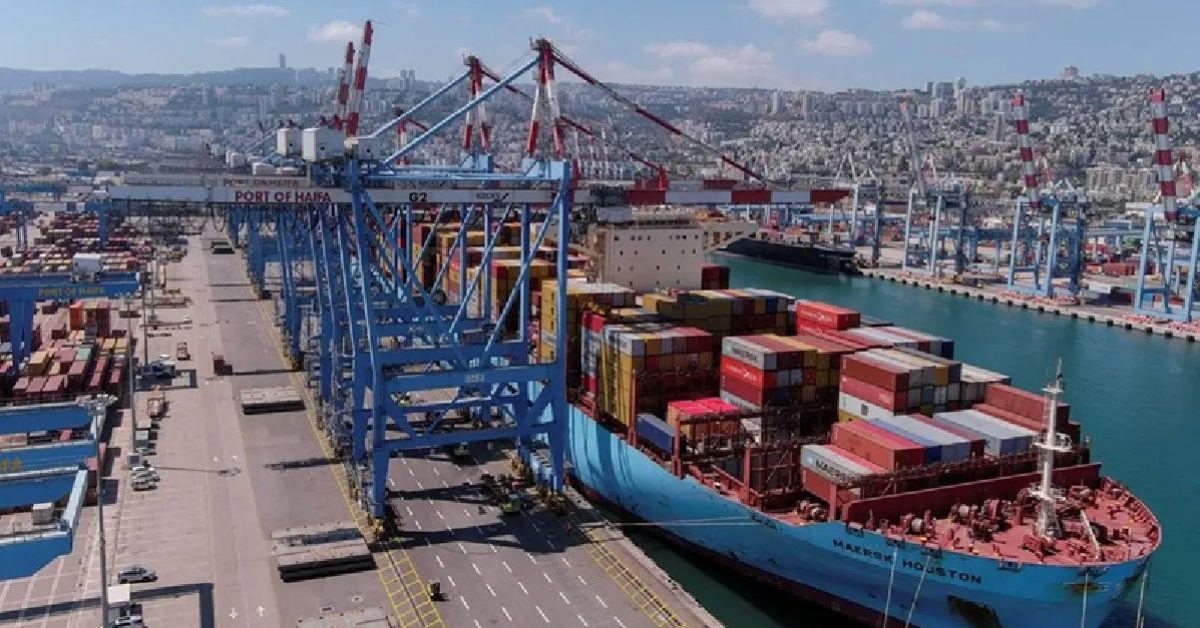India is looking to strategically increase the size of its port infrastructure and management capabilities worldwide. Following its successful involvement in Iran’s Chabahar port and other nearby ports, the nation is looking for port and/or berth operations prospects in African countries. Indian Ports Global Ltd (IPGL), a joint venture company established by Jawaharlal Nehru Port Trust and Kandla Port Trust for the development of port projects abroad, would carry out these growth initiatives, according to Ministry of Ports, Shipping, and Waterways officials.
According to reports, IPGL is seeking a project manager to be stationed in Tehran as part of the shipping ministry’s assignment to outfit and run container/multipurpose terminals at Chabahar port. A few African countries have been shortlisted to investigate berth management options, starting with Tanzania.
India and Tanzania have signed many memorandums of understanding (MoUs) pertaining to the development of maritime and port infrastructure, including as industrial parks, port operations, and maritime cooperation, according to sources who spoke to Tapping Tanzania.
The establishment of an industrial park in Tanzania is the subject of a significant agreement between the Tanzania Investment Center and the Jawaharlal Nehru Port Authority (JNPA). An MOU for collaboration in the marine sector has been inked by Cochin Shipyard Ltd and Marine Services Co Ltd, a Tanzanian business that operates tankers, cargo ships, and ferries. Tanzania is undoubtedly on our radar, and we will consider broadening our business there as JNPA is building an industrial park or SEZ there.
Tanzania’s principal ports are situated on the Indian Ocean in Tanga, Mtwara, and Dar es Salaam. Lindi, Kilwa Masoko, Mafia Island, Bagamoyo, Pangani, and Kwale are examples of minor ports. The islands of Pemba and Zanzibar also have ports, such as Mkoani and Chake Chake.
Adani Ports and Special Economic Zone Ltd (APSEZ), the biggest integrated transport utility in India, is presently well-established in Tanzania, particularly at the port of Dar es Salaam, where it operates container terminal No. 2 under a 30-year concession. Additionally, Adani Ports has a joint venture with AD Ports Group and East Harbour Terminals Limited called East Africa Gateway Limited, which purchased a 95% share in Tanzania International Container Terminal Services.
The Shahid Beheshti terminal at Chabahar Port, which is essential to India’s involvement in the International North-South Transport Corridor and a key entry point for trade with Afghanistan and Central Asia, is run by IPGL. By FY26, Chabahar’s container handling capacity is anticipated to reach 100,000 TEUs, and plans are underway for Indian shipping lines to begin operations there. It is anticipated that the port will handle 75,000 TEUs of containers in FY25. It reached 64,245 TEUs at the end of January, up from just 9,126 TEUs in FY23, according to figures from India’s shipping ministry. The port of Chabahar is still open for investment.
with an additional emphasis on marketing initiatives to guarantee operational sustainability. As long as geopolitical unrest persists, the insider continued, “operations are commercially viable, but it will take some more time to be profitable.” There are plans for a second berth as well. According to reports, India is considering expanding its activities at Chabahar port with a capital expenditure of ₹4,000 crore. India plans to increase its capacity fivefold to 500,000 TEUs over a ten-year period, with orders for over five mobile harbor cranes, according to shipping ministry officials, who also stated that negotiations were in progress. Plans for the neighborhood India aims to advance its geopolitical and commercial interests along trade routes connecting Europe, Africa, and the Asia-Pacific area by competing with China for a foothold in ports in its immediate neighborhood.
Sittwe port in Myanmar, a crucial part of the Kaladan multimodal transit project connecting Bangladesh, Thailand, and Kolkata, is now operated by IPGL. It is anticipated that improved connectivity via Myanmar will assist India in forging a smooth commercial route to Southeast Asia and bolstering regional economic ties. With a scheduled regular ferry service between Nagapattinam (India) and Kankesanthurai (Sri Lanka), IPGL’s development and operation of the port in Sri Lanka not only increases bilateral trade but also revitalizes maritime passenger connection.
The newly established State-owned consortium Bharat Global Ports, which is being marketed as a provider of “end-to-end port infrastructure solutions,” comprising terminal operations, financing, logistics, and connectivity, is at the heart of these plans. This entity’s operational arm will be IPGL. In response to questions about why a state-backed organization does not operate in its own nation, an official clarified that “IPGL’s international image will be enhanced if it engages in domestic berth operations.”









